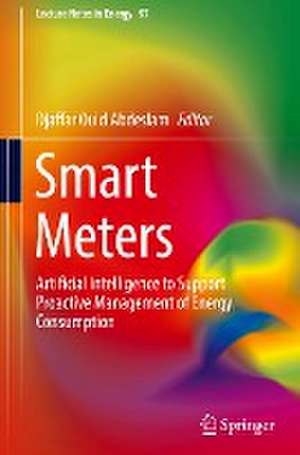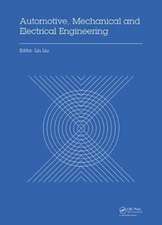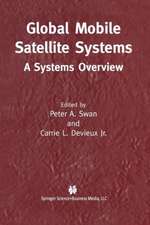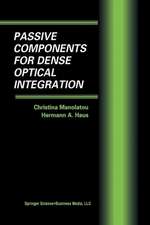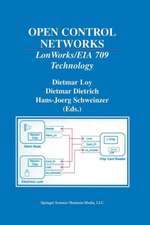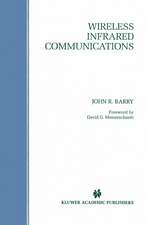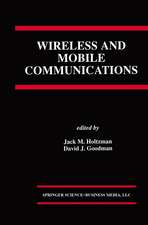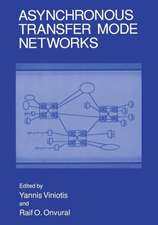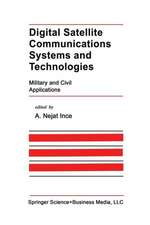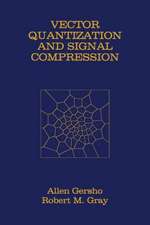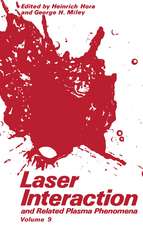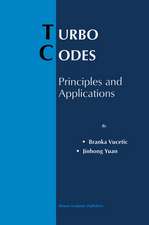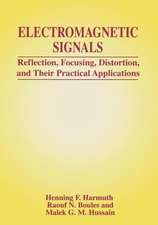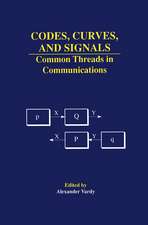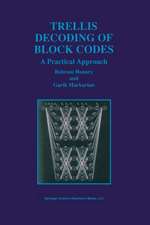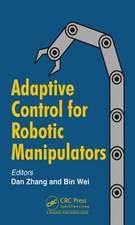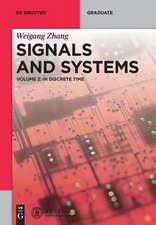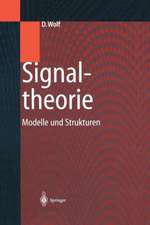Smart Meters: Artificial Intelligence to Support Proactive Management of Energy Consumption: Lecture Notes in Energy, cartea 97
Editat de Djaffar Ould Abdeslamen Limba Engleză Hardback – 2 apr 2023
One of the critical factors for the transition to clean energy is the flexibility of the power grid. A flexible grid requires a constant flow of data about the network and its demand, on the other hand, clients who produce electrical power can be an active part of the demand response if they are informed about the power needs of their appliances.
“If you cannot measure it, you cannot improve it.” This common management saying also holds true for the area energy efficiency. Without a clear understanding of their energy usage, consumers are unable to take steps to reduce their consumption. A new intelligent tool is presented that is more efficient, safe, and acceptable to consumers. Thus, users of this intelligent tool will be able to collect and predict the consumption of their electrical appliances. At the same time, the consumption information is anonymized before being relayed to the energy supplier. In parallel, new techniques will be evaluated to improve the security level of the smart meter in a highly heterogeneous network.
Din seria Lecture Notes in Energy
-
 Preț: 436.35 lei
Preț: 436.35 lei - 15%
 Preț: 655.60 lei
Preț: 655.60 lei - 18%
 Preț: 952.09 lei
Preț: 952.09 lei - 18%
 Preț: 1012.84 lei
Preț: 1012.84 lei - 15%
 Preț: 635.80 lei
Preț: 635.80 lei - 15%
 Preț: 645.96 lei
Preț: 645.96 lei - 15%
 Preț: 645.47 lei
Preț: 645.47 lei - 15%
 Preț: 640.06 lei
Preț: 640.06 lei - 15%
 Preț: 649.71 lei
Preț: 649.71 lei - 15%
 Preț: 643.84 lei
Preț: 643.84 lei - 18%
 Preț: 954.31 lei
Preț: 954.31 lei - 15%
 Preț: 643.84 lei
Preț: 643.84 lei - 18%
 Preț: 949.73 lei
Preț: 949.73 lei - 18%
 Preț: 1411.69 lei
Preț: 1411.69 lei - 15%
 Preț: 634.18 lei
Preț: 634.18 lei - 15%
 Preț: 649.87 lei
Preț: 649.87 lei - 15%
 Preț: 642.03 lei
Preț: 642.03 lei - 18%
 Preț: 957.62 lei
Preț: 957.62 lei - 15%
 Preț: 652.49 lei
Preț: 652.49 lei - 18%
 Preț: 963.15 lei
Preț: 963.15 lei -
 Preț: 361.03 lei
Preț: 361.03 lei -
 Preț: 391.79 lei
Preț: 391.79 lei - 15%
 Preț: 646.11 lei
Preț: 646.11 lei -
 Preț: 394.29 lei
Preț: 394.29 lei -
 Preț: 391.22 lei
Preț: 391.22 lei - 18%
 Preț: 954.45 lei
Preț: 954.45 lei - 18%
 Preț: 957.62 lei
Preț: 957.62 lei - 15%
 Preț: 647.27 lei
Preț: 647.27 lei - 18%
 Preț: 960.30 lei
Preț: 960.30 lei - 18%
 Preț: 1250.74 lei
Preț: 1250.74 lei - 15%
 Preț: 642.18 lei
Preț: 642.18 lei - 15%
 Preț: 639.41 lei
Preț: 639.41 lei -
 Preț: 488.71 lei
Preț: 488.71 lei - 18%
 Preț: 1677.21 lei
Preț: 1677.21 lei
Preț: 892.74 lei
Preț vechi: 1088.70 lei
-18% Nou
Puncte Express: 1339
Preț estimativ în valută:
170.82€ • 178.35$ • 141.38£
170.82€ • 178.35$ • 141.38£
Carte tipărită la comandă
Livrare economică 05-19 aprilie
Preluare comenzi: 021 569.72.76
Specificații
ISBN-13: 9783031275555
ISBN-10: 3031275551
Pagini: 216
Ilustrații: VII, 216 p. 60 illus., 40 illus. in color.
Dimensiuni: 155 x 235 mm
Greutate: 0.49 kg
Ediția:2023
Editura: Springer International Publishing
Colecția Springer
Seria Lecture Notes in Energy
Locul publicării:Cham, Switzerland
ISBN-10: 3031275551
Pagini: 216
Ilustrații: VII, 216 p. 60 illus., 40 illus. in color.
Dimensiuni: 155 x 235 mm
Greutate: 0.49 kg
Ediția:2023
Editura: Springer International Publishing
Colecția Springer
Seria Lecture Notes in Energy
Locul publicării:Cham, Switzerland
Cuprins
Advanced state of the art based on smart meters already carried out in Europe and around the world.- Smart Meter consumer acceptance.- Smart Meters improved by NILM.- How to empower the consumers to take action to reduce energy consumption and GHG emissions.- How to guaranty the security level of the smart meter.- Modification and harmonization of the current legal framework for smart meters for a compatible cross-sectoral legal framework.- Techno-economic review of Smart Metering applications.
Notă biografică
Djaffar Ould Abdeslam is a Full Professor with Habilitation at the Department of Electrical Engineering of the University of Haute Alsace (Mulhouse, France). He obtained Ph.D. and HDR degree (Habilitation à Diriger des Recherches) in Electrical Engineering in 2005 and 2014 respectively at the University of Haute Alsace. Djaffar Ould Abdeslam is member of the IRIMAS laboratory. He is the head of the IMTI research team (7 Professors, 9 Associate Professors and 1 research engineer) from January 2023.
Djaffar Ould Abdeslam hold the PES (Prime d'Excellence Scientifique), Allowance for Scientific Excellence, given by the French Ministry of Education in 2012 and PEDR (Prime d’Encadrement Doctorale et de Recherche) in 2018. He is an IEEE Senior Member and IES Member (Industrial Electronics Society), since 2008.
He had the opportunity to co-supervise 18 Ph.D. theses and co-supervise 8 other Ph.D. theses in progress. These various works have given more than 160 internationalpublications and communications (59 journal articles, 106 international conferences, 1 software patent, 1 book, and 2 book chapters). One of his journal papers in IEEE Tran. on Industrial Electronics is cited 304 times according to Google Scholar.
He has been involved in 23 projects: 19 research contracts evaluated following a call for proposals and 5 research contracts by mutual agreement (He is a scientific coordinator of 3 international research projects among them: French-Canadian project with the University of Toronto, French-Algerian research project with the University of Tizi-Ouzou and European INTERREG project with 15 partners (www.smi.uha.fr)).
Djaffar Ould Abdeslam regularly co-organizes and chairs special sessions at IEEE conferences (19 since 2006) in the field of modern control and artificial intelligence techniques for improving power quality. He was invited 14 times for plenary conferences and 11 times for international conferences technical program committee members. He was invited as a researcher in the Centre for Applied Power Electronics (CAPE) laboratory (University of Toronto, Canada), periods of May 2010, May 2011, May 2012, May 2013, and May 2014.
His research interest includes artificial neural networks applied to power systems, artificial intelligence for power quality improvement, smart metering, smart grids, and battery management. He also works on the biological electrical signals as ECG and EMG for the heart diagnosis and myoelectric hand prostheses control, respectively.
Djaffar Ould Abdeslam hold the PES (Prime d'Excellence Scientifique), Allowance for Scientific Excellence, given by the French Ministry of Education in 2012 and PEDR (Prime d’Encadrement Doctorale et de Recherche) in 2018. He is an IEEE Senior Member and IES Member (Industrial Electronics Society), since 2008.
He had the opportunity to co-supervise 18 Ph.D. theses and co-supervise 8 other Ph.D. theses in progress. These various works have given more than 160 internationalpublications and communications (59 journal articles, 106 international conferences, 1 software patent, 1 book, and 2 book chapters). One of his journal papers in IEEE Tran. on Industrial Electronics is cited 304 times according to Google Scholar.
He has been involved in 23 projects: 19 research contracts evaluated following a call for proposals and 5 research contracts by mutual agreement (He is a scientific coordinator of 3 international research projects among them: French-Canadian project with the University of Toronto, French-Algerian research project with the University of Tizi-Ouzou and European INTERREG project with 15 partners (www.smi.uha.fr)).
Djaffar Ould Abdeslam regularly co-organizes and chairs special sessions at IEEE conferences (19 since 2006) in the field of modern control and artificial intelligence techniques for improving power quality. He was invited 14 times for plenary conferences and 11 times for international conferences technical program committee members. He was invited as a researcher in the Centre for Applied Power Electronics (CAPE) laboratory (University of Toronto, Canada), periods of May 2010, May 2011, May 2012, May 2013, and May 2014.
His research interest includes artificial neural networks applied to power systems, artificial intelligence for power quality improvement, smart metering, smart grids, and battery management. He also works on the biological electrical signals as ECG and EMG for the heart diagnosis and myoelectric hand prostheses control, respectively.
Textul de pe ultima copertă
This book describes how equipping buildings with smart meters is essential to improve the prediction of energy costs within smart grids and to help end-users optimize their energy consumption. The book reports on the results of the European Upper Rhine INTERREG project SMI (www.smi.uha.fr), which connects artificial intelligence and micro-societal analysis. It is multidisciplinary and addresses the following aspects: social, legal, environmental, and technical.
One of the critical factors for the transition to clean energy is the flexibility of the power grid. A flexible grid requires a constant flow of data about the network and its demand, on the other hand, clients who produce electrical power can be an active part of the demand response if they are informed about the power needs of their appliances.
“If you cannot measure it, you cannot improve it.” This common management saying also holds true for the area energy efficiency. Without a clear understanding of their energy usage, consumers are unable to take steps to reduce their consumption. A new intelligent tool is presented that is more efficient, safe, and acceptable to consumers. Thus, users of this intelligent tool will be able to collect and predict the consumption of their electrical appliances. At the same time, the consumption information is anonymized before being relayed to the energy supplier. In parallel, new techniques will be evaluated to improve the security level of the smart meter in a highly heterogeneous network.
One of the critical factors for the transition to clean energy is the flexibility of the power grid. A flexible grid requires a constant flow of data about the network and its demand, on the other hand, clients who produce electrical power can be an active part of the demand response if they are informed about the power needs of their appliances.
“If you cannot measure it, you cannot improve it.” This common management saying also holds true for the area energy efficiency. Without a clear understanding of their energy usage, consumers are unable to take steps to reduce their consumption. A new intelligent tool is presented that is more efficient, safe, and acceptable to consumers. Thus, users of this intelligent tool will be able to collect and predict the consumption of their electrical appliances. At the same time, the consumption information is anonymized before being relayed to the energy supplier. In parallel, new techniques will be evaluated to improve the security level of the smart meter in a highly heterogeneous network.
Caracteristici
Introduces a new, AI-enabled and secure smart meter Describes the prospects for future development of smart meters Includes case studies from three countries
